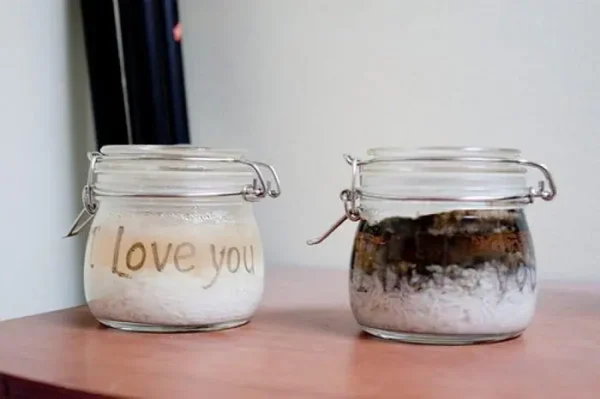“Important Words” is the sixth in a monthly column of mental health articles by Karen Munson. Read the next article “Meditation,” at the link.
“Our words can be supportive or angry, joyful or mean, compassionate or tossed aside. In the heat of the moment, words can sting and sink painfully deep into the soul—and stay there. Our words on the internet, texting, social media, or tweets take on a life of their own. So be careful what you say and how you say it. In our families, especially with husbands, wives, and children, our words can bring us together or drive a wedge between us.”
– Ronald A. Rasband
In previous Byway Issues, the newspaper published a few ways we can help ourselves emotionally, mentally and physically. Another powerful tool for helping ourselves and others is words.
Words are important. A few words and phrases I have identified that can affect our lives significantly are names, the words “yet,” “thank you” and “I love you,” and expressions of gratitude.
Names
If words were put on a scale of importance, what would be considered the most important of all words? When Neal A. Maxwell, widely regarded as a language scholar, was asked this question in a private conversation, he responded without hesitation, “Your name.”
Think how it makes you feel when someone remembers your name, and how a measure of bonding takes place when you remember someone else’s name. It is your heritage and identity, your badge, your affiliation, perhaps your commitment. What you personally do with that name will affect those who come after you. Your name is important.
Names are words that invisibly affect more than the humans around us. In a study in Japan, Dr. Masaru Emoto researched the influence of words on water. He taped the names of Mother Teresa and Hitler on separate jars of water from the same source. When frozen, a droplet from Mother Teresa’s jar made a beautiful crystal, while a droplet from Hitler’s made a deformed glob. What we do with our name has influence.
“Yet,” “Thank You” and “I Love You”
Another important word is yet. I learned this from Escalante’s now-retired math teacher. When Mrs. Christensen’s 3rd grade math students complained, “I don’t know how to multiply,” she acknowledged their frustration with this encouragement: “You don’t know how to multiply yet.” I use this tiny but powerful word regularly to encourage me in my efforts. It encourages me and acknowledges past attempts and future progress.
Yet is a keeper.
In another set of experiments, Dr. Emoto spoke to beakers filled with fresh rice in water. To the first beaker, he said, “Thank you.” To the second beaker, he said, “You’re an idiot.” He completely ignored the third. He repeated this routine daily. After one month, the rice he had thanked began to ferment, giving off a pleasant aroma. The rice in the second beaker turned black. The rice in the third started to rot.
This experiment has been replicated hundreds of times as illustrated in the feature image where the words, “I love you,” and “I hate you,” were taped on jars of rice with similar results.
Thank you and I love you are obvious keepers.
Expressions of Gratitude
“I’m sorry” is a catch-all phrase used for everything from a heart-wrenching plea for forgiveness, to a lame excuse for bad behavior (with a shoulder shrug). “I’m sorry” can be powerful, but only when it is sincere and used appropriately. In many cases an expression of gratitude is better.
Abused women can feel like they need to apologize for everything, whether they are responsible or not. In psychotherapist Beverly Engel’s book The Power of an Apology, she states that over-apologizing sends a message that you lack confidence and are ineffectual. “It can even give a certain kind of person permission to treat you poorly, or even abuse you,” warns Engel.
There are other ways to communicate rather than apologizing. If you are late for work, how will it help to apologize? You may have prioritized other things over being on time, or matters were out of your control. Either way, you are not sorry.
But if you are at fault for something, your wording can still be positive. Try turning it around.
If you have kept someone waiting, rather than saying, “I’m sorry,” express gratitude. “Thank you for waiting patiently while I dealt with an issue.”
If someone notices an error you’ve made, rather than saying, “I’m sorry,” express gratitude. “Thank you for catching that. I appreciate your attention to detail.”
If you need to say no to an opportunity or social engagement, rather than saying, “I’m sorry I can’t attend,” express gratitude. “Thank you for inviting me. I won’t be able to make it, but I appreciate the invitation.”
Notice the shift in energy that comes when you flip it around.
There are still times, though, when “sorry” is the right word. If you really are at fault and you messed up, own it. It isn’t easy to be vulnerable and admit our mistakes, but if we are genuinely responsible and feel remorseful, then we need to apologize. It may strengthen healthy relationships. But don’t take responsibility for the actions of others or say “I’m sorry” when you have done nothing wrong or aren’t genuinely remorseful.
Words are powerful. Next time you say someone’s name, inflict an insult, or say “I love you” or “I’m sorry,” be mindful of the effect those words will have.
– by Karen Munson
Feature image courtesy of Masaru Emoto.

Karen M. Munson – Escalante
Karen is an associate editor at The Byway. She is fascinated and fulfilled by all things involved with writing. After graduating from BYU, she taught English at Escalante High School for three years. She pursues opportunities to write and support others in their writing. Karen has published three books with four more scheduled to be released in 2024. She and Reed are the parents of ten children and the grandparents of 35 grandchildren.
Karen is the author of the New Twist on Mental Health column in The Byway.

